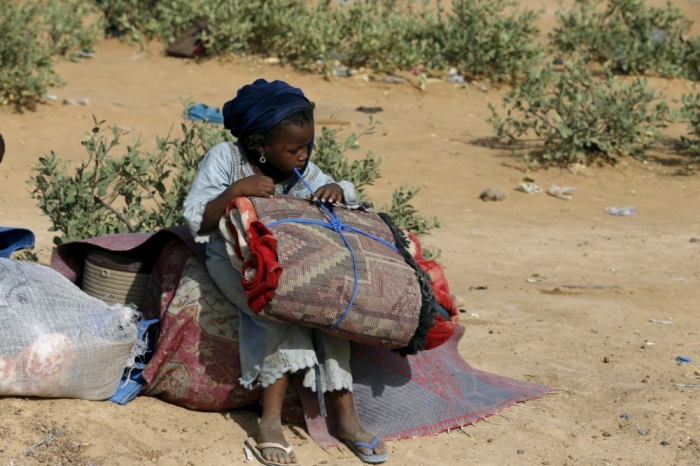UNICEF Report Reveals 1 in 5 Boko Haram Suicide Bomb Attacks Carried Out by Children

International children's relief organization UNICEF has reported a 10-fold increase of child suicide bombers being used in attacks by Nigerian terror group Boko Haram.
"Let us be clear: these children are victims, not perpetrators," Manuel Fontaine, UNICEF regional director for West and Central Africa,.said Tuesday. "Deceiving children and forcing them to carry out deadly acts has been one of the most horrific aspects of the violence in Nigeria and in neighbouring countries."
The report by the organization noted that while there were four reported child bombers in Nigeria, Cameroon, Chad and Niger in 2014, that number rose to 44 in 2015. What is more, 75 of the children involved in such attacks were girls.
Boko Haram has been attacking government forces, alongside towns and villages of Christians and Muslims opposed to radical Islam since 2009, and in the past few years it has branched out its attacks to neighboring countries.
There have reportedly been even more child suicide attacks carried out in Cameroon, at 21 attacks, than in Nigeria, which suffered 17 such attacks in the period between January 2014 and February of this year.
The statistics showed that as much as one in five suicide bombers being used by Boko Haram are children, while the frequency of all suicide bombings increased from 32 in 2014 to 151 in 2015.
UNICEF warned that news of children being coerced into carrying bombs has created "an atmosphere of fear and suspicion that has devastating consequences" for girls and young children who have managed to escape Boko Haram.
"As 'suicide' attacks involving children become commonplace, some communities are starting to see children as threats to their safety," Fontaine added. "This suspicion toward children can have destructive consequences; how can a community rebuild itself when it is casting out its own sisters, daughters and mothers?"
A BBC News report from March shed some insight into the ways in which Boko Haram persuade children and teenagers to join their cause, such as offering them "spiritual help."
One 17 year old girl, identified as Hauwa, revealed she had been kidnapped and held by Boko Haram for more than a year, and was being groomed to carry out a suicide attack at a refugee camp in Dikwa.
"I said 'No,' since my mum is residing in Dikwa, I won't go and kill people there. I would rather go and stay with my family, even if I die there," she said.
The girl said that what eventually led to her joining the militants was "I had spiritual problems and so the Boko Haram told me they could help get rid of them."
Both UNICEF and International Alert warned in a separate report in February that the fear and distrust the community has over returning victims of Boko Haram is becoming a critical problem.
"As they return, many face marginalization, discrimination and rejection by family and community members due to social and cultural norms related to sexual violence," the 28-page February report read.
"There is also the growing fear that some of these girls and women were radicalized in captivity. The children who have been born of sexual violence are at an even greater risk of rejection, abandonment and violence."




























